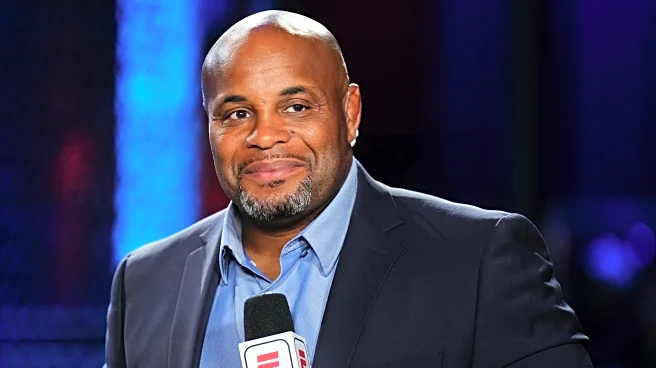What is the story about?
What's Happening?
Naseem Rochette, a tech worker with 25 years of experience, faced a significant life change after a car accident in 2018 resulted in a traumatic brain injury and neurodivergence. Previously holding leadership roles at major companies like Microsoft and Google, Rochette found her ability to multitask and thrive in chaotic environments diminished. This shift led her to adopt a new approach to work, emphasizing vulnerability and deeper focus on fewer tasks. Rochette's experience has transformed her leadership style, allowing her to connect more authentically with colleagues and solve complex problems more effectively. Her journey highlights the challenges and adaptations required when personal health impacts professional capabilities.
Why It's Important?
Rochette's story underscores the broader implications of neurodivergence in the workplace, particularly in the tech industry. Her experience demonstrates how personal challenges can lead to positive changes in leadership and work dynamics. By embracing vulnerability and focusing on fewer tasks, Rochette has become a more effective leader, advocating for herself and others with similar experiences. This shift in approach may inspire other organizations to reconsider how they support neurodivergent employees, potentially leading to more inclusive work environments. The tech industry, known for its fast-paced and demanding nature, could benefit from adopting practices that accommodate diverse working styles and needs.
What's Next?
Rochette's journey continues as she navigates her role at Databricks, where she applies her new leadership style. Her story may encourage other companies to implement policies that support neurodivergent employees, fostering a more inclusive and understanding workplace culture. As awareness of neurodivergence grows, businesses might explore training programs and resources to better accommodate employees with diverse needs. Rochette's advocacy and mentorship efforts could also inspire individuals facing similar challenges to embrace their unique strengths and contribute positively to their organizations.
Beyond the Headlines
Rochette's experience highlights the ethical and cultural dimensions of workplace inclusivity. Her story raises questions about how companies can better support employees with disabilities or neurodivergence, ensuring they have the tools and environment needed to succeed. This development could lead to long-term shifts in corporate culture, promoting diversity and acceptance. Additionally, Rochette's emphasis on vulnerability as a leadership strength challenges traditional notions of leadership, potentially influencing how future leaders are trained and evaluated.
















